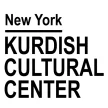"Border," a poem by Hemin Mukriyani
Border
Taken away from me, the one whom I worshipped,
The one who is no God but my love
In no heaven she resides
Nor in Mount Qaf* she dwells.
Who has taken her from me and kept me away from her!
This would be nothing but the border set upon us by the enemy.
Hemin Mukriyani (1921–1986), Complete Poems, p. 232.
*Mount Qaf: A mysterious chain of mountains in popular Middle Eastern mythology that the Jinns inhabited.
Short Analysis of the Poem
After the fall of the Republic of Mahabad (aka the Republic of Kurdistan) on December 15, 1946, Mukriyani was exiled to Iraq to escape persecution by the Iranian Pahlavi regime. Along with his fellow poet Hazhar Mukriyani, the republic’s president, Qazi Muhammad, named him the poet laureate of the republic. In this poem, Mukriyani reflects on his grief over exile as well as the oppression endured by his people following World War I.
The poem was written in Berfanbar (a Kurdish month between late November and early December) 1972. It takes the form of a sestet and can be considered an elegy for a republic that has been toppled and a nation that has been divided. We can also sense Mukriyani’s deep love for his oppressed nation. From the poem’s first line, we see how dedicated he is to his patriotic thoughts, as he equates his country, “the one whom I worshipped,” with God.
Although Mukriyani expresses in the second line that the one he worships is not God but his love, he reassures the reader in the third and fourth lines that his love is earthly, not ethereal. He refers to his love as “she”**: it is common in the Kurdish language to refer to one’s land or country as female or mother. The first known God worshipped in Kurdistan was a Mother God.***
Mukriyani’s lover is so close that she is not unreachable; still, he cannot reach her due to the borders set upon them by the enemy. Who are the enemies of Mukriyani and his lover? They are likely the occupiers of Kurdistan, those who toppled the Mahabad Republic, or perhaps the Treaty of Lausanne.
**The Sorani dialect is genderless; however, since Kurds always refer to their country as “mother,” we can confidently say that the one Mukriyani refers to is female.
***A clay figure of a pregnant woman was discovered in Jarmo village, located in the Chamchamal district of South Kurdistan. This village is regarded as one of the oldest human settlement sites in history, and the clay figures are believed to represent fertility goddesses.
The Poem in Kurdish Language
سنوور
ئەی ئەو کەسەی دەتپەرستم و لێم ونی!
تۆ خودا نی، تۆ خۆشەویستی منی
لە ئاسمان نی تا وێت ڕانەگا دەستم
لە قاف نی کاڵەی ئاسنت بۆ هەڵبەستم
تۆی لە من ون کرد و منی لە تۆ دوور
ئەو بستۆکەی دوژمن ناوی نا سنوور
 Dastan Galali, who wrote the analysis and translated the poem, is a literary translator and academic based in Hewlêr.
Dastan Galali, who wrote the analysis and translated the poem, is a literary translator and academic based in Hewlêr.















